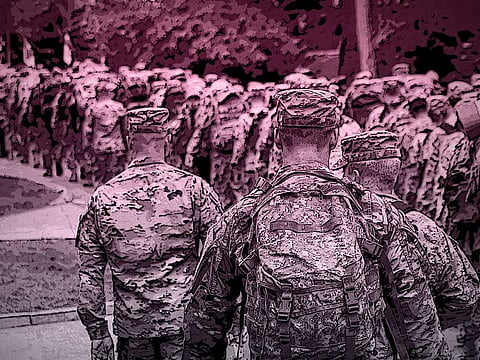Biden’s withdrawal from Afghanistan: A Triumph or Tragedy?
Biden administration’s report on Afghanistan withdrawal fails to acknowledge mistakes

This month marks two years since President Joe Biden ordered the withdrawal of US forces from Afghanistan, bringing America’s two-decade war there to an end.
One might hope that Washington would be engaged in a searching debate about what went wrong in that conflict. So far, alas, it’s not clear that hindsight is making America much wiser.
See, most recently, the Biden administration’s “after action review” of the US withdrawal. That document is not an objective assessment of a searing episode.
The report blames former president Donald Trump, correctly, for signing a flawed peace deal that was merely a fig leaf for US withdrawal. It blames the intelligence community, correctly, for failing to foresee the speed of the Afghan military’s collapse.
It blames the Afghan government, correctly, for failing to take measures that might have delayed defeat. The report does not, however, acknowledge any mistakes on the part of current senior American leaders or the president himself.
There’s no acknowledgement that a rapid US pullout, executed just as the fighting season was starting, disastrously destabilised the battlefield. There’s no analysis of the breakdowns of inter-agency coordination that turned an unavoidably difficult withdrawal into an epic mess.
There’s no discussion of the terrible consequences the pullout had for the Afghan people, including those who had worked with the US. Biden’s national security spokesman even denied — in a statement that surely would have been labelled a “lie” had it come from the Trump administration — that there was any chaos at all in Kabul in August 2021.
Triumph of visionary statecraft?
A humiliating withdrawal, the report argues, was really a triumph of visionary statecraft. It’s an oddly defensive stance to take — not least because the administration actually has a decent story to tell. Even those, like me, who criticised the withdrawal must admit that aspects of Biden’s decision look better now.
(My view was that it made sense for the US to stay if it could do so with a force of a few thousand troops, reinforced by allies; it did not make sense if the cost would have been significantly higher.)
The world has gotten ugly, quickly, since August 2021. The Taiwan Strait has become a great-power flash point. A full-blown war rages in Ukraine. The US government can do more than one thing at a time.
So why can’t the administration be a bit more candid? The problem is more political than analytical.
Biden took a beating in the polls when Kabul fell. Now, the Republican-controlled House of Representatives is investigating the withdrawal. Don’t be shocked if that inquiry becomes intensely adversarial and politicised. With November 2024 on the horizon, Biden certainly won’t give his political rivals any additional ammunition to use against him.
Fortunately, there will be other opportunities to review the past with an eye to the future. The congressionally chartered, non-partisan Afghanistan War Commission is charged with studying the entire 20-year history of the conflict.
Its report will probably be sober and serious — but it probably won’t be delivered for another few years. It’s a shame we’ll have to wait so long for a more penetrating, and less politicised, reckoning with the lessons of America’s longest war.
Bloomberg
Hal Brands is the Henry Kissinger Distinguished Professor at Johns Hopkins University’s School of Advanced International Studies and co-author, most recently, of “Danger Zone: The Coming Conflict with China” and a member of the State Department’s Foreign Affairs Policy Board.
Sign up for the Daily Briefing
Get the latest news and updates straight to your inbox



